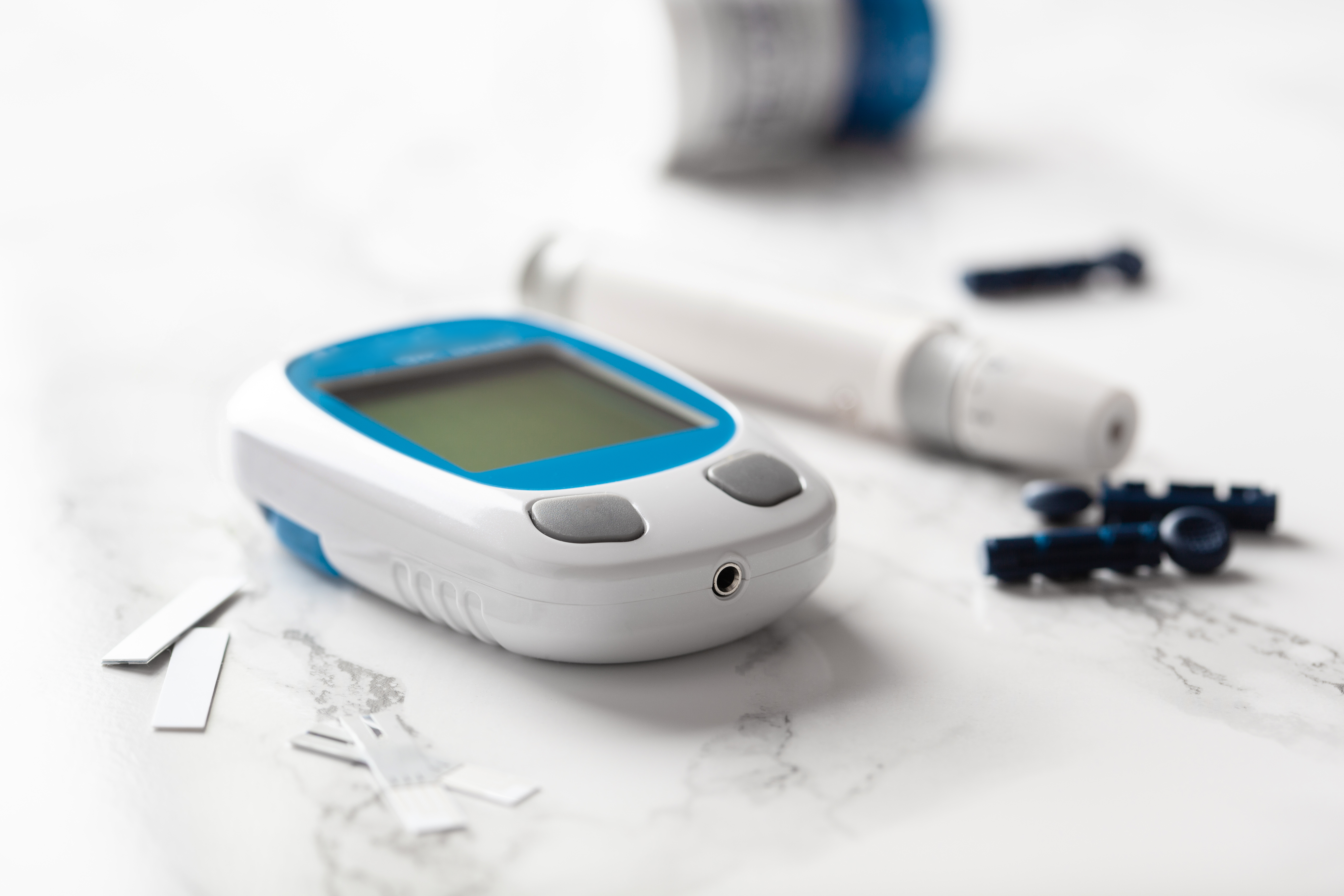12 Unexpected Ways Your Teeth Reveal Your Overall Health
The mouth is often referred to as the gateway to the body, and for good reason. While many people view oral health as separate from the rest of the body, modern research is increasingly showing that the condition of your teeth and gums can reveal a lot about your overall health. This connection is not just theoretical; it is supported by a growing body of scientific evidence. In this guide, we will explore 12 surprising ways that your teeth can provide insights into your general well-being, helping you to understand your health like never before. The relationship between oral health and systemic health is complex and multifaceted. It involves a two-way street where not only can dental issues indicate systemic problems, but systemic health issues can also manifest in the mouth. As we delve into each of these aspects, you'll discover how interconnected your body truly is, and why your dentist might be one of your most important healthcare providers.
1. Cardiovascular Health: A Direct Link

Your heart and your mouth are more connected than you might think. Several studies have shown a correlation between gum disease and cardiovascular issues, such as heart disease and stroke. This connection is largely due to inflammation, a common factor in both periodontal disease and cardiovascular disease. When your gums are inflamed, they can release harmful bacteria into your bloodstream, which can then travel to your heart and contribute to the formation of arterial plaque. This plaque can lead to atherosclerosis, a condition that narrows the arteries and can cause heart attacks and strokes. Moreover, the bacteria from gum disease can also cause inflammation in the blood vessels, further increasing the risk of cardiovascular problems. It's important to note that while a link exists, it does not necessarily mean that one causes the other. However, maintaining good oral hygiene can potentially reduce the risk of heart disease by minimizing inflammation and bacterial presence. Regular dental check-ups and cleanings are crucial in this regard, as they help detect and treat gum disease early, potentially preventing more serious health issues down the line.
2. Diabetes: A Two-Way Street

The relationship between diabetes and oral health is particularly noteworthy. People with diabetes are more susceptible to infections, including gum disease, due to their body's impaired ability to fight bacteria. Conversely, severe gum disease can affect blood glucose control and contribute to the progression of diabetes. This bidirectional relationship means that managing one condition can have positive effects on the other. For diabetics, maintaining good oral hygiene is essential, as it can help keep blood sugar levels stable and prevent complications. Periodontal disease can exacerbate diabetes by increasing blood sugar levels, making diabetes harder to control. This occurs because the inflammation from gum disease can increase insulin resistance, a hallmark of type 2 diabetes. Therefore, regular dental visits and good oral hygiene practices are crucial for diabetics. Dentists can play a key role in the management of diabetes by educating patients about the importance of oral health and its impact on their condition. By understanding this connection, patients can take a more holistic approach to their health, improving both their oral and systemic health outcomes.
3. Respiratory Health: Breathing Easy

Your oral health can also have implications for your respiratory system. Poor oral hygiene can lead to the inhalation of bacteria from infected teeth and gums into the lungs, potentially causing respiratory infections such as pneumonia. This is particularly concerning for individuals with compromised immune systems or chronic respiratory conditions like COPD (Chronic Obstructive Pulmonary Disease). The bacteria from periodontal disease can aggravate these conditions, leading to more frequent and severe respiratory issues. Furthermore, there is evidence to suggest that maintaining good oral hygiene can reduce the risk of respiratory infections, especially in vulnerable populations such as the elderly and those with pre-existing health conditions. Regular dental check-ups and good oral hygiene practices, including brushing, flossing, and possibly using antimicrobial mouthwashes, can help reduce the bacterial load in the mouth and lower the risk of respiratory infections. By understanding the link between oral health and respiratory health, individuals can take proactive steps to protect their lungs and overall well-being.
4. Pregnancy Complications: A Critical Consideration

Pregnancy is a time of significant change in a woman's body, and oral health is no exception. Hormonal changes during pregnancy can increase the risk of gum disease, which in turn has been linked to several pregnancy complications. Studies have shown that pregnant women with periodontal disease are at a higher risk of preterm birth and low birth weight babies. The inflammation and bacteria associated with gum disease can enter the bloodstream and affect the developing fetus, potentially leading to these complications. For expectant mothers, maintaining good oral hygiene is crucial. Regular dental visits should be a part of prenatal care to ensure that any oral health issues are addressed promptly. Dentists can provide guidance on how to manage oral health during pregnancy, including tips on brushing, flossing, and using mouthwash effectively. By prioritizing oral health, pregnant women can improve their chances of having a healthy pregnancy and reduce the risk of complications for both themselves and their babies.
5. Osteoporosis: Bone Health Insights

Osteoporosis is a condition characterized by weakened bones and an increased risk of fractures. Interestingly, there is a connection between osteoporosis and oral health, particularly in relation to the jawbone and tooth loss. The jawbone, like other bones in the body, can be affected by osteoporosis, leading to a loss of bone density and potentially resulting in loose teeth or tooth loss. Additionally, some studies have suggested that women with osteoporosis are more likely to experience periodontal disease. The link between osteoporosis and oral health underscores the importance of maintaining strong bones through adequate calcium and vitamin D intake, regular exercise, and avoiding smoking and excessive alcohol consumption. Dentists can play a role in identifying early signs of osteoporosis by examining changes in the jawbone and teeth. By understanding this connection, individuals can take steps to protect their bone health and prevent oral health issues related to osteoporosis.
6. Digestive Health: The Oral-Digestive Connection

The process of digestion begins in the mouth, making oral health a key component of digestive health. Chewing is the first step in digestion, and any issues with teeth or gums can affect this process. Poor oral health can lead to difficulties in chewing and swallowing, which can impact nutrient absorption and overall digestive health. Additionally, oral infections and bacteria can be swallowed and affect the gastrointestinal tract, potentially leading to digestive issues. Maintaining good oral hygiene is essential for promoting digestive health. Regular brushing and flossing can help prevent dental issues that could interfere with chewing and digestion. Additionally, addressing any oral infections promptly can prevent bacteria from entering the digestive system and causing problems. By understanding the connection between oral health and digestion, individuals can take steps to support their digestive system and overall health.
7. Mental Health: The Psychological Impact

The connection between oral health and mental health is often overlooked, but it is an important aspect of overall well-being. Poor oral health can have a significant impact on self-esteem and mental health, as issues such as tooth loss or gum disease can affect appearance and lead to feelings of embarrassment or self-consciousness. Additionally, chronic oral health issues can contribute to stress and anxiety, further impacting mental health. Conversely, mental health conditions can also affect oral health. For example, individuals with depression or anxiety may neglect oral hygiene, leading to dental problems. Additionally, some medications used to treat mental health conditions can have side effects that impact oral health, such as dry mouth, which can increase the risk of cavities and gum disease. Understanding the connection between oral health and mental health is crucial for addressing both aspects of well-being and improving overall health outcomes.
8. Immune System: A Barrier to Infection

Your oral health can also provide insights into the state of your immune system. The mouth is a primary entry point for bacteria and viruses, making it an important component of the body's immune defense. Poor oral hygiene can lead to an overgrowth of harmful bacteria, which can overwhelm the immune system and contribute to infections and inflammation. Additionally, oral health issues such as gum disease can trigger an immune response, leading to chronic inflammation that can affect the entire body. Maintaining good oral hygiene is essential for supporting the immune system and preventing infections. Regular brushing, flossing, and dental check-ups can help keep harmful bacteria in check and reduce the risk of infections. Additionally, addressing any oral health issues promptly can prevent them from affecting the immune system and overall health. By understanding the connection between oral health and the immune system, individuals can take steps to support their body's natural defenses and improve their overall health.
9. Nutritional Deficiencies: Signs in the Mouth

Oral health can also provide clues about nutritional deficiencies. Certain deficiencies, such as vitamin C deficiency, can manifest in the mouth as gum disease or bleeding gums. Similarly, a lack of vitamin D or calcium can affect the health of the teeth and bones, leading to issues such as tooth decay or osteoporosis. Other deficiencies, such as iron deficiency, can cause symptoms such as a sore or swollen tongue, or even mouth sores. Dentists can play a key role in identifying potential nutritional deficiencies by examining the condition of the teeth and gums. By addressing these deficiencies through dietary changes or supplements, individuals can improve their oral health and overall well-being. Understanding the connection between oral health and nutrition is crucial for maintaining a balanced diet and preventing deficiencies that can impact health.
10. Cancer Detection: Early Warning Signs

Oral health can also play a role in the early detection of certain types of cancer. For example, oral cancer can manifest as unusual sores or lesions in the mouth, which can be detected during a routine dental examination. Additionally, certain types of cancers, such as leukemia, can cause oral symptoms such as bleeding gums or mouth sores. Dentists are trained to recognize these signs and can refer patients for further evaluation if necessary. Regular dental check-ups are essential for the early detection of oral cancer and other health issues. By understanding the connection between oral health and cancer detection, individuals can take proactive steps to protect their health and seek treatment early if necessary. Dentists play a crucial role in identifying potential signs of cancer and guiding patients through the next steps for diagnosis and treatment.
11. Sleep Apnea: The Dental Connection

Sleep apnea is a condition characterized by interrupted breathing during sleep, which can lead to a range of health issues, including cardiovascular problems and daytime fatigue. Interestingly, dentists can play a role in identifying and managing sleep apnea. Certain oral health issues, such as a misaligned jaw or enlarged tongue, can contribute to sleep apnea, and dentists can provide treatment options such as oral appliances to help manage the condition. Additionally, dentists can identify signs of sleep apnea during a routine examination, such as worn teeth from grinding or a small airway. By understanding the connection between oral health and sleep apnea, individuals can seek appropriate treatment and improve their sleep quality and overall health. Dentists can work in collaboration with other healthcare providers to address sleep apnea and its associated health risks.
12. Alzheimer's Disease: Oral Health Implications

Emerging research suggests a potential link between oral health and Alzheimer's disease. Some studies have found that the bacteria associated with gum disease can travel to the brain and contribute to the development of Alzheimer's disease. This connection highlights the importance of maintaining good oral hygiene as a potential way to reduce the risk of cognitive decline. While more research is needed to fully understand this connection, it underscores the importance of oral health in overall health and well-being. Regular dental check-ups and good oral hygiene practices can help prevent gum disease and potentially reduce the risk of Alzheimer's disease. By understanding the connection between oral health and cognitive health, individuals can take steps to protect their brain health and improve their quality of life.
The Power of Oral Health

As we've explored in this guide, oral health is intricately connected to overall health in a multitude of ways. From cardiovascular health to diabetes, respiratory health, and even mental health, the condition of your teeth and gums can provide valuable insights into your general well-being. By understanding these connections, individuals can take a more holistic approach to their health, addressing both oral and systemic health issues to improve their overall quality of life. Regular dental check-ups and good oral hygiene practices are essential for maintaining oral health and preventing potential health issues. Dentists play a crucial role in identifying potential health problems and guiding patients through the necessary steps for treatment and prevention. By prioritizing oral health, individuals can take control of their health and well-being, unlocking the secrets that their teeth hold to understanding their overall health like never before.
